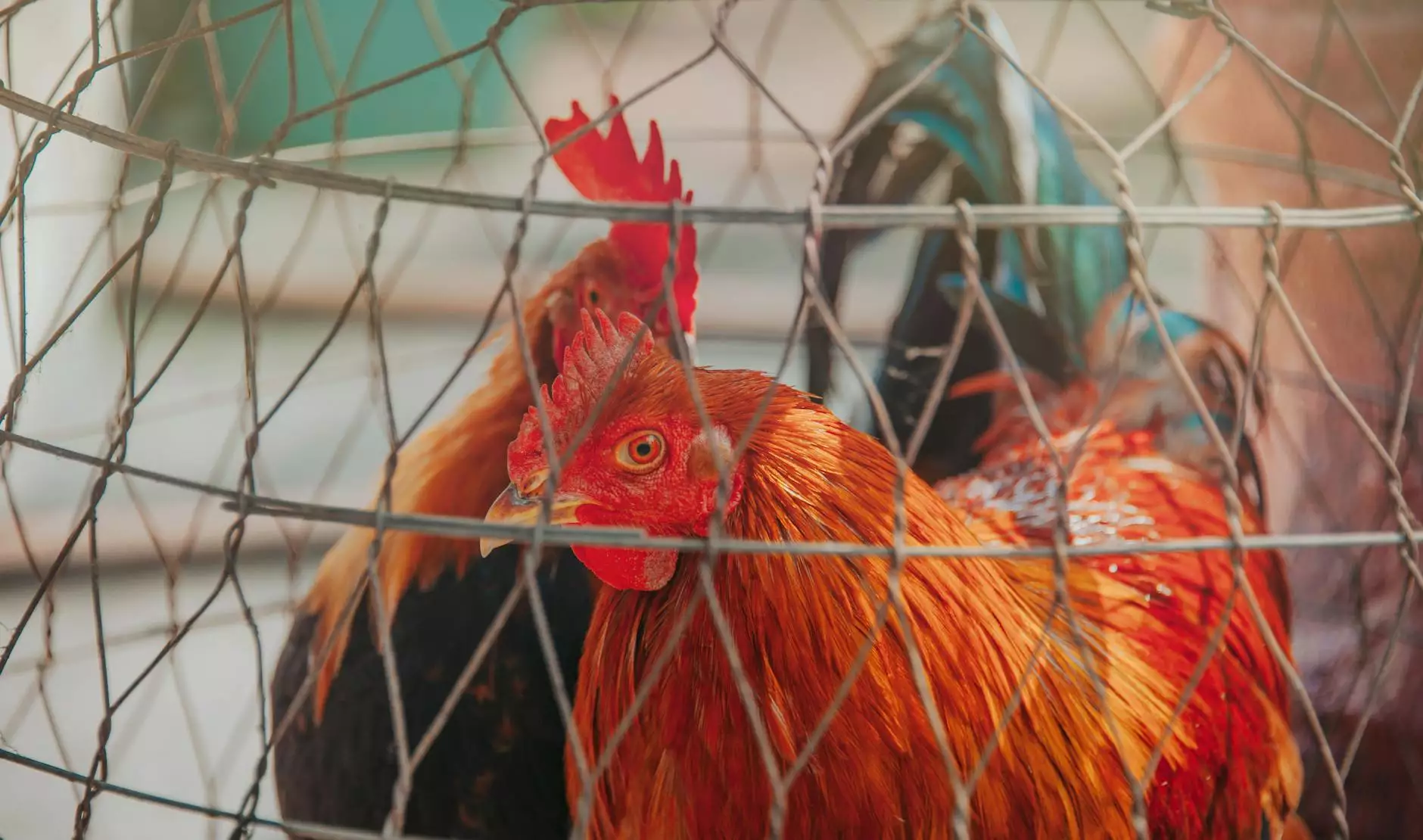Brazilian Poultry Exporters: A Comprehensive Guide to Success

The poultry industry has long been a cornerstone of Brazil's agricultural economy, making it one of the world's leading poultry exporters. With its vast resources, favorable climate, and commitment to quality, Brazil stands out as a key player in the global poultry market. In this article, we will delve into the business of Brazilian poultry exporters, shedding light on their operations, quality assurance processes, and the advantages they offer to international buyers seeking chicken in bulk.
The Growth of the Brazilian Poultry Industry
Brazil’s strategic location in the heart of South America, combined with its extensive agricultural facilities, has led to a rapid expansion of the poultry industry. The country now boasts one of the most competitive sectors in the world. Key factors contributing to this growth include:
- Climate: Brazil's warm climate is ideal for raising chickens, allowing for optimal growth rates and productivity.
- Infrastructure: The country has invested heavily in infrastructure, enabling efficient production and transportation systems that support poultry exports.
- Livestock Management: Advanced farming techniques and access to veterinary services have greatly improved the overall health and productivity of poultry.
- Government Policies: Supportive regulations and trade agreements have opened doors for Brazilian poultry in international markets.
Quality Assurance in Brazilian Poultry Exports
Quality is paramount for Brazilian poultry exporters. Strict adherence to global standards ensures that products meet the expectations of international markets. Here are some key aspects of their quality assurance processes:
1. Regulatory Compliance
Brazilian poultry exporters are required to comply with both domestic and international regulations. The Ministry of Agriculture, Livestock, and Food Supply (MAPA) in Brazil is responsible for overseeing poultry production and export regulations, ensuring that exporters meet the required food safety standards.
2. Hygiene and Animal Welfare
Maintaining high hygiene standards is critical. Brazilian producers implement strict biosecurity measures on farms to prevent disease outbreaks. Additionally, there is a growing emphasis on animal welfare, ensuring that poultry is raised in conditions that promote health and wellbeing.
3. Laboratory Testing
Regular testing for contaminants and pathogens is standard practice among Brazilian poultry exporters. These tests help ensure that the meat is safe for consumption and meets the quality standards set by importing countries.
Advantages of Sourcing from Brazilian Poultry Exporters
International buyers looking for chicken in bulk can benefit significantly from sourcing their poultry from Brazilian exporters. Below are some advantages that set them apart from competitors:
1. Competitive Pricing
Brazilian poultry producers benefit from economies of scale, allowing them to offer competitive pricing while maintaining quality. This is particularly attractive for bulk buyers looking to maximize their profit margins.
2. Diverse Product Range
Brazilian exporters supply a wide variety of poultry products, including whole chickens, chicken parts, and processed products. This diversity enables buyers to meet their specific market demands effectively.
3. Reliable Supply Chains
With advanced logistics and a commitment to timely deliveries, Brazilian poultry exporters ensure that their customers receive their orders promptly. This reliability is essential for businesses that need consistent supply to meet consumer demand.
4. High Quality Meets International Standards
Brazil has established a reputation for producing high-quality poultry products. By adhering to international standards, Brazilian exporters guarantee that their products are suitable for various global markets, including the EU, Asia, and the Middle East.
Market Trends Influencing Brazilian Poultry Exports
The global poultry market is constantly evolving, influenced by consumer preferences, economic changes, and health trends. Here are some notable trends affecting Brazilian poultry exports:
1. Health and Sustainability
Today's consumers are increasingly health-conscious and environmentally aware. As a result, there is a growing demand for organic and sustainably raised poultry products. Brazilian exporters are recognizing this trend and adapting their practices to include more sustainable farming methods.
2. Emerging Markets
While traditional markets like the United States and the European Union remain key destinations for Brazilian poultry, emerging markets in Asia and Africa are rapidly expanding. These regions offer new opportunities for growth and diversification for Brazilian exporters.
3. Technological Advancements
Innovation is driving the poultry industry forward. Brazilian exporters are investing in technology to enhance production efficiency, from advanced feed formulations to automated farming techniques. This not only boosts productivity but also improves the quality of the meat produced.
Challenges Facing Brazilian Poultry Exporters
Despite the many advantages and opportunities present in the Brazilian poultry market, exporters also face several challenges. Understanding these challenges is essential for navigating the industry successfully:
1. Trade Barriers
While Brazil has secured numerous trade agreements, trade barriers such as tariffs and stringent import regulations can pose challenges for exporters. Navigating these regulations requires careful planning and awareness of international trade laws.
2. Pharmaceutical Regulations
International buyers are increasingly scrutinizing the use of antibiotics and hormones in poultry production. Brazilian exporters must comply with strict regulations regarding these substances, which can affect production practices and costs.
3. Market Competition
The global poultry market is highly competitive, with countries like the United States, China, and Thailand also vying for market share. Brazilian exporters must continually innovate and improve their practices to maintain a competitive edge.
How to Partner with Brazilian Poultry Exporters
For businesses interested in sourcing chicken in bulk from Brazil, establishing a partnership with reputable poultry exporters is essential. Here are some steps to consider:
1. Research and Identify Exporters
Conduct thorough research to identify credible Brazilian poultry exporters. Look for companies with a strong track record of compliance, quality, and customer satisfaction.
2. Evaluate Quality Standards
Ensure that the exporters you consider meet international quality standards. Request certifications and evidence of compliance with health and safety regulations.
3. Negotiate Contracts
Once you have identified potential partners, negotiate favorable contracts that outline pricing, delivery schedules, and quality expectations. Clear communication is key to a successful partnership.
4. Stay Informed
As markets evolve, staying informed about changes in regulations, consumer trends, and market dynamics will help you make informed decisions about your poultry sourcing strategy.
The Future of Brazilian Poultry Exports
The outlook for Brazilian poultry exporters remains bright, marked by continued growth and expansion into new markets. With a commitment to quality, sustainability, and innovation, Brazil is well-positioned to remain a leader in the global poultry supply chain. As businesses around the world seek reliable sources of chicken in bulk, partnering with Brazilian exporters can provide the competitive edge they need to succeed in an ever-changing market.
Conclusion
In summary, the business of Brazilian poultry exporters is not just about providing chicken; it is about delivering quality and assurance to global markets. With a robust infrastructure, commitment to quality, and adaptability to changing market demands, Brazil continues to set the standard in the poultry export industry. As you consider sourcing poultry, look no further than the reliable and innovative Brazilian poultry exporters—your partner in success.









